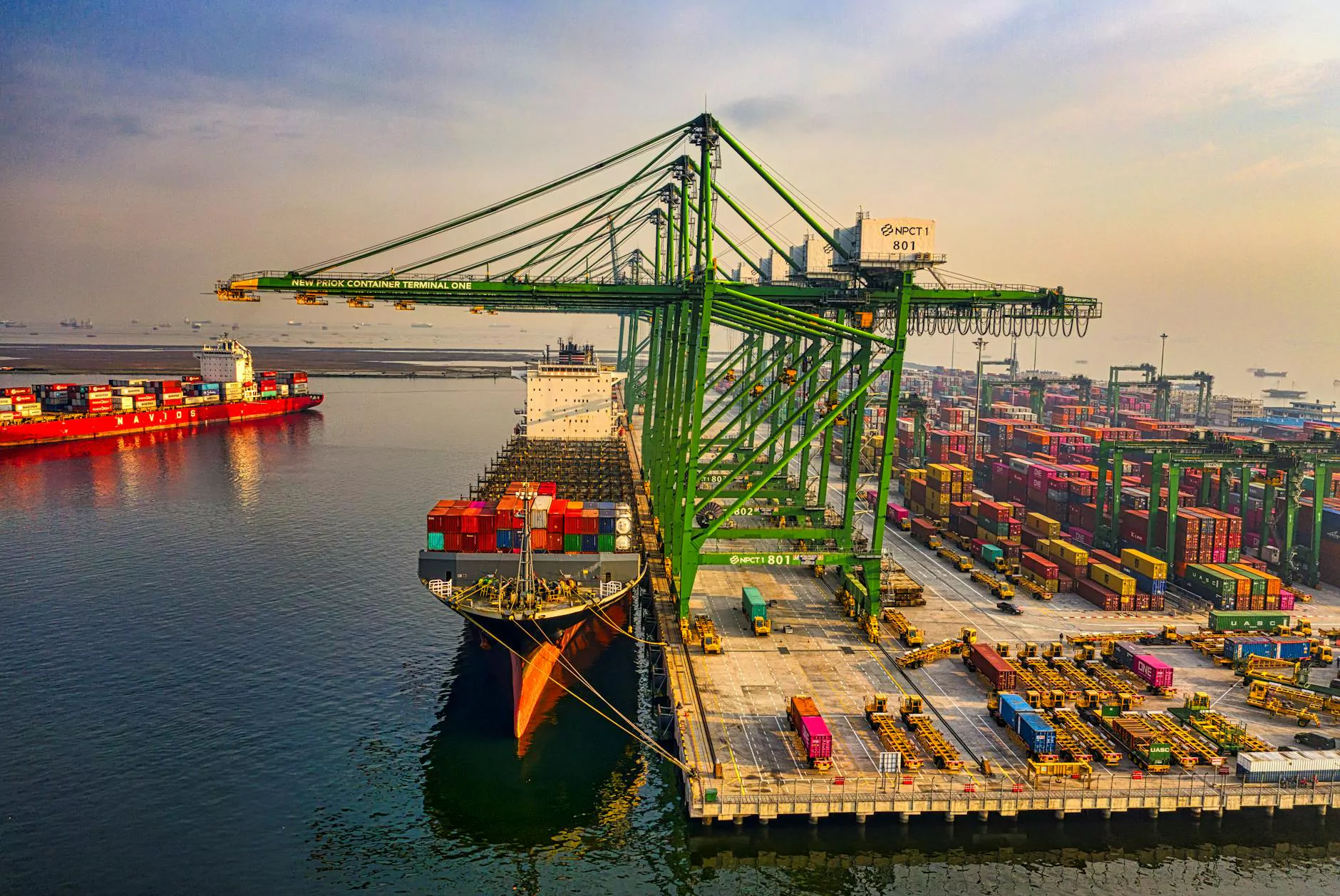Understanding Truckload Freight Quotes: A Comprehensive Guide

In today's rapidly evolving business landscape, efficient shipping and logistics are crucial for the success of any enterprise. One of the most important aspects that businesses need to understand is the truckload freight quote. In this extensive guide, we will delve into what truckload freight quotes are, how they work, and the factors that influence them. Moreover, we will explore how you can leverage these quotes to optimize your shipping processes and costs. So, whether you are involved in the logistics industry or simply looking to improve your business's shipping efficiency, this article is for you.
What is a Truckload Freight Quote?
A truckload freight quote is an estimate provided by a freight carrier or logistics company that details the cost of transporting a full truckload of goods from one location to another. Unlike less-than-truckload (LTL) shipping, where multiple shipments are consolidated into one truck, truckload shipping involves a single shipment that fills an entire trailer.
Importance of Truckload Freight Quotes
Understanding and obtaining accurate truckload freight quotes is essential for several reasons:
- Cost Predictability: Knowing how much your shipping will cost helps in budgeting and financial forecasting.
- Shipping Efficiency: A truckload quote allows businesses to plan their logistics more effectively, ensuring timely deliveries.
- Rate Comparison: Having multiple quotes enables businesses to compare rates across different carriers, ensuring they get the best deal.
- Better Negotiation: Understanding the market rates allows businesses to negotiate better terms with their logistics providers.
Factors Influencing Truckload Freight Quotes
Several factors play a vital role in determining the rates provided in a truckload freight quote. Here are some key considerations:
1. Distance
The distance between the shipping origin and the destination significantly impacts the freight quote. Longer distances generally result in higher costs due to fuel consumption and driver wages.
2. Type of Cargo
Different types of cargo have varying levels of risk and handling requirements. For instance, the shipment of perishable goods may require refrigerated transport, affecting the quote.
3. Weight and Volume
Carriers often base their quotes on the weight and volume of the cargo. Heavier and bulkier shipments may incur higher charges due to the resources needed for transport.
4. Seasonality
Seasonal demands can also affect freight rates. For example, during peak shipping seasons such as holidays, freight rates may increase due to higher demand for trucking services.
5. Route and Accessibility
The specific route taken by the truck and the accessibility of both the pickup and drop-off locations can influence costs. Routes that are less traveled or have difficult access may incur additional charges.
How to Obtain a Truckload Freight Quote
Securing a truckload freight quote is a straightforward process, but it does require some preparation. Here are steps you can take to get accurate quotes:
1. Provide Accurate Details
When requesting a freight quote, be sure to provide complete and accurate information, including:
- Origin and destination addresses
- Weight and dimensions of the cargo
- Type of freight (e.g., hazardous materials, perishables)
- Desired shipping dates
2. Compare Multiple Quotes
As with any service, it's beneficial to obtain quotes from multiple carriers. This allows you to compare rates and services offered, ensuring you make an informed decision.
3. Engage with Freight Brokers
Freight brokers can assist in obtaining quotes, as they often have established relationships with multiple carriers. This can save you time and help secure better rates due to their negotiation power.
4. Analyze Terms and Conditions
When you receive a freight quote, carefully review the terms and conditions. Look for details on insurance, transit times, and cancellation policies.
Strategies to Optimize Truckload Shipping Costs
Once you understand truckload freight quotes, it's important to implement strategies that can help you minimize costs while maintaining efficiency. Here are some effective strategies:
1. Consolidate Shipments
If possible, try to consolidate your shipments into fewer truckloads. This can lead to lower overall shipping costs and reduces the frequency of transportation.
2. Plan Routes Efficiently
Planning the most efficient routes can significantly reduce travel time and fuel costs. Utilize route optimization software to streamline this process.
3. Negotiate Rates with Carriers
Once you establish a relationship with a carrier, don't hesitate to negotiate rates. Carriers often appreciate long-term partnerships and may offer discounts for regular business.
4. Monitor Market Trends
Stay informed about fluctuations in freight rates and market trends. Being aware of when to ship can lead to significant savings, especially during off-peak seasons.
Utilizing Freight Rate Websites
Websites like freightrate.com offer valuable resources for obtaining truckload freight quotes. These platforms allow users to:
- Retrieve multiple quotes from various carriers within minutes.
- Compare rates and services easily.
- Access tools and resources for better logistics planning.
Conclusion
In summary, understanding truckload freight quotes is crucial for businesses that rely on shipping. By knowing the factors that affect quotes, how to obtain them, and the strategies for optimizing shipping costs, businesses can significantly enhance their logistics operations. As the industry continues to evolve, leveraging technology and resources such as freightrate.com can provide a competitive edge in managing shipping efficiently. Embrace these insights, and take your shipping strategies to the next level!
For more information on shipping centers, business consulting, and vehicle shipping, explore our website and enhance your operational efficiencies today!



